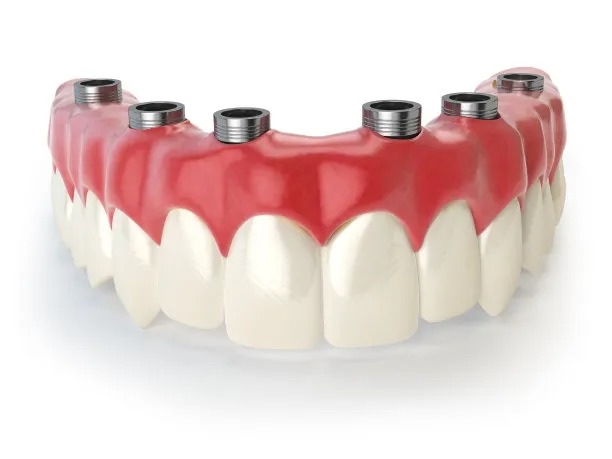Summary: Undergoing dental implantation can significantly enhance ones quality of life, particularly for individuals who have lost teeth. However, optimal results and long-term success hinge on several essential precautions. This article delves into key areas to consider before proceeding with dental implants: understanding the dental team, assessing bone health, evaluating individual health conditions, and planning for proper aftercare. By paying attention to these precautions, patients can increase their chances of a successful outcome and avoid potential complications.
1. Understanding the Dental Team Involved

Choosing the right dental team is paramount for a successful dental implantation. When you select a dentist or an oral surgeon, ensure that they have significant experience and specialization in implantation procedures. It is important to verify their credentials, ask about past patient outcomes, and look into customer reviews. A skilled professional will not only perform the surgery but will also provide clear guidance throughout the process.
Moreover, your dental team should include support staff, such as dental hygienists and assistants, who assist in patient care. Ensure that the clinic operates with a cohesive team approach, where everyone understands the procedure and is familiar with your medical history. This collective effort can greatly improve the procedural experience.
Lastly, dont hesitate to ask your dental provider questions. Clear communication about procedures, expectations, and potential risks is vital. A reliable dental team will be transparent about what to expect before, during, and after the surgery, setting a solid foundation for trust and reassurance.
2. Assessing Bone Health for Implants
Bone health plays a crucial role in the success of dental implants. The jawbone needs to be sufficiently dense and strong to hold the implant securely. Therefore, prior to surgery, a thorough evaluation of your bone health is necessary. This could involve X-rays or CT scans to assess bone structure and density.
If bone loss has occurred, options such as bone grafts may be necessary to augment the jawbone before implants can be placed. Procedures like these add time and cost to the dental process but are essential for ensuring that the implant can firmly integrate with the bone.
Understanding bone health is not just about density; it also entails recognizing your body’s ability to heal post-surgery. Patients with healthier bones tend to recover faster and experience fewer complications. Hence, discussing your bone health candidly with your dental team is crucial for optimal results.
3. Evaluating Individual Health Conditions
Your overall health can significantly influence the success of dental implantation. Certain chronic health conditions, such as diabetes or autoimmune diseases, may hinder the bodys natural healing process, making it crucial to disclose your complete medical history to your dental team. This transparency allows them to tailor the approach specifically to your needs.
Furthermore, lifestyle choices like smoking can adversely affect the success rate of dental implants. Smokers are generally advised to quit smoking several weeks before and after the procedure to enhance healing and reduce the chances of implant failure.
Additionally, medications can interact with dental procedures in unexpected ways. Consult with your physician about all medications you are taking, especially blood-thinners or bisphosphonates, which can delay healing. Properly evaluating your health conditions ensures a more controlled and successful implantation process.
4. Planning for Proper Aftercare
Post-surgery aftercare is another essential aspect that directly impacts the longevity of dental implants. From understanding your dietary restrictions to managing pain and discomfort, a well-structured aftercare plan is necessary to ensure quick recovery. Your dental team should provide comprehensive post-operative instructions for medication, activity restrictions, and oral hygiene practices specific to your needs.
Maintaining regular follow-up appointments allows for monitoring the healing process and intervening early if complications arise. It is vital to adhere to the follow-up schedule set by your dental provider, as these checks ensure that the implant is integrating well with the bone.
Incorporating good oral hygiene practices after the surgery is crucial for preventing infections, which can jeopardize the success of the implants. Regular brushing, flossing, and possibly using antimicrobial mouthwash will contribute to a conducive healing environment. Overall, proper aftercare is not just about recovery but also about maintaining the integrity of the dental implants over the long term.
Summary:
In conclusion, undertaking dental implantation requires careful preparation and attention to detail across various areas, including selecting a qualified dental team, assessing bone health, evaluating individual health conditions, and planning for effective aftercare. By addressing these essential precautions, patients can significantly enhance their potential for optimal results and long-term success.
This article is compiled by Vickong Dental and the content is for reference only.
Vickong Dental
Vickong Dental is a large medical group established in Hong Kong in 2008 by professors from well-known medical universities in Guangdong and Hong Kong, as well as medical doctors from key national '985' universities (including Master's supervisors and senior professors). The chain of branches brings together expert dentists with PhDs and Master's degrees from Hong Kong and Mainland China, committed to providing high-quality dental treatment.
"Vickong Dental Practices the University Motto of 'Healing and Serving Society,' with a Stable Operation for Sixteen Years. It Has Been honored with Hong Kong Enterprise Leaders's Choice,' and is a Global Trusted Implant Center for the Nobel Implant System. Recommended by Hong Kong Metro Broadcast and Guangdong Television, it Serves Customers from Over Thirty Countries and Regions, Gaining the Trust and Favor of Citizens from the Guangdong-Hong Kong-Macau Greater Bay Area and Surrounding Cities.

Thousands of customers' unanimous praise
The most recognized and highly recommended dental service by customers in the Guangdong-Hong Kong-Macau Greater Bay Area
We Ensure You Receive Detailed Care and Attention Here
Hong Kong standards, Shenzhen prices, Your Trusted English-speaking dentists

Vickong Dental Medical-Grade Instrument Disinfection Process
Vickong Dental Medical-Grade Instrument Disinfection Process

Vickong Dental Chain: A Warm and Comfortable Environment for Treatment






Appointment Hours

Q&A
Why choose Vickong Dental?
Vickong Dental practices the university motto 「Medicine to Benefit Society」, with each branch bringing together highly qualified dentists with doctoral and master’s degrees from Hong Kong and the Mainland, and has maintained seventeen years of steady operation。Recipient of 「2024 Hong Kong Enterprise Leaders Brand」, 「2025 Hong Kong Enterprise Leaders Brand」, a Nobel Biocare Global Trusted Implant Center, and a brand recommended by Metro Radio Hong Kong and Guangdong TV。
To date, we have served customers from more than thirty countries and regions,earning exceptionally high word-of-mouth recognition and trusted recommendations from residents across the Guangdong-Hong Kong-Macao Greater Bay Area and surrounding cities
We have eight major branches in Zhuhai、Shenzhen,and a consultation and service assurance center in Hong Kong,so you can book a free consultation at any time for any questions,which is very reassuring.
If I do not accept the quotation after the CT scan, will I be charged??
No! As long as the actual treatment has not started, you will not be charged any fees.
Will there be any additional charges during the treatment process?
No, there won’t be any additional charges. Before treatment begins, we will clearly explain the treatment plan and its corresponding fees. Only after the patient agrees and signs the consent form will we proceed with the dental service.
Can I pay in Hong Kong dollars?
Yes. Vickong Dental accepts payment in Hong Kong dollars. The amount will be converted based on the exchange rate of the day, and the applicable rate will be clearly communicated to you in advance.
Can I reschedule my appointment at any time?
Yes. Please contact us via **WeChat** or **WhatsApp** as early as possible, providing your original appointment time and details, along with your preferred new date and time slot for rescheduling.













